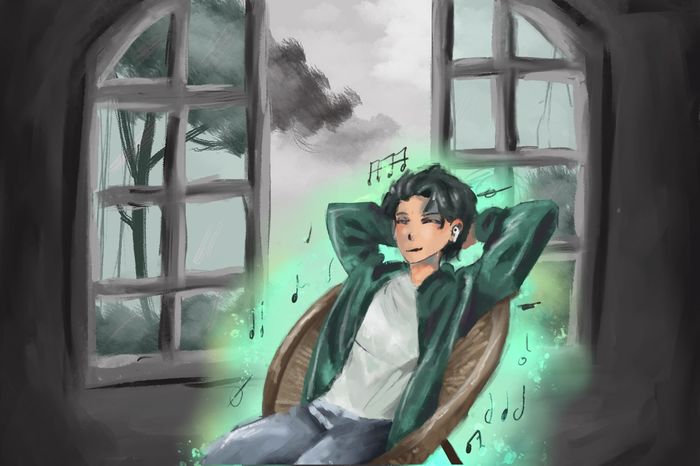In defence of Cambridge’s classical music scene
Jack Marley argues that Cambridge has a great music scene… if you know what you’re looking for

In a recent article for this section, Cambridge’s oft-derided music scene received rare praise, particularly for the variety of venues and festivals the city has on offer. As writer Maria Sofia Milano points out, “Where else can you hear, quite casually, a talented and diverse choir while having lunch, or pick up free tickets to an intimate chamber music performance?” This highlights an important and valuable part of Cambridge’s musical life. Despite the huge amount of classical music constantly being performed, it rarely gets mentioned in discussions about the city’s music scene. When it does, it is usually to illustrate a deficit rather than a valuable contribution.
At a university with a unique abundance of easily accessible music-making, often within the very colleges where many of us live, this should not be overlooked. Multiple times a week, I hear the chapel bell ringing from my room and know I could wander through a few courtyards to enjoy some gorgeous choral music in a space designed by Christopher Wren. In another recent article, Cambridge’s active student theatre scene is presented as a foil for its supposedly lacklustre music one. Yet, if you look closely at the posters bustling for attention on the city’s railings, there is a fairly even balance of classical music and theatre being advertised.
“Cambridge holds a significant place within the nation’s classical music scene, far beyond its standing in other genres”
Choirs aside, Cambridge has hosted some genuinely significant classical concerts, even recently. In 2022, one of the preeminent chamber groups of the last 50 years, the Emerson String Quartet, played their final ever concert in England before disbanding – in Cambridge (!). In May this year, the Academy of Ancient Music, a leading ensemble of period musicians, premiered a major new commission by the American composer Roderick Williams, setting words by Ignatius Sancho, the first person of colour given the vote in this country. Events like these show that Cambridge holds a significant place within the nation’s classical music scene, far beyond its standing in other genres.
Cambridge’s classical scene has also produced its fair share of big names. Though some are quick to dismiss the city’s contribution to English music, I would disagree. Sweeping generalisations about all music invite rebuttal, and Cambridge has produced prominent and influential classical musicians for generations. In 2014, Judith Weir, an alum of King’s, was appointed as the first female Master of the Queen’s Music, a post dating back to the 17th century. She used it to promote state-funded musical education and composed music for the Queen’s funeral. Her successor, announced in recent months, is Errollyn Wallen CBE, another King’s alum and the first person of colour to hold the position. Listing all the other important performers, conductors, and composers would reduce this article to a lengthy directory – certainly contrasting with any attempt to list big non-classical acts emerging from the city.
It is perhaps obvious why this is. Classical music is deeply embedded in Cambridge’s institutions, people, and places. The earlier article I referenced highlights the bias of the city’s physical spaces: endless churches, chapels, old dining halls, art galleries, and a concert hall lend themselves perfectly to hosting top-quality classical music (which they do), but not to a rich and varied gig scene. Furthermore, administrative and financial support for classical music is abundant, with backing from the Faculty of Music, well-established college societies, and the Centre for Music Performance, alongside concert series like Kettle’s Yard Concerts and Camerata Musica.
“Classical music is deeply embedded into the institution, its people, and its places”
Many of the University’s classical alumni studied music, often drawn by internationally renowned composers like Alexander Goehr and Robin Holloway teaching in the faculty during the late 20th century. As one friend noted, just a few years ago the faculty still had more academics specialising in Johannes Brahms than all of pop music. Up against this institutional momentum, it’s unsurprising that student-run venues, gig nights, and societies struggle to maintain a scene of comparable activity and pedigree.
Celebrating the rich and active classical music scene at Cambridge is likely of little consolation to those wishing for a more varied gig scene or hoping for Cambridge bands to make it big. It’s indicative of classical music’s broader PR problem with anyone under the age of 65 that most of the activity I’ve mentioned exists in a perceived bubble of retiree townies and neeky musos like me. Yet, most of us are only here for a few years and will go on to live in places with far more active popular music scenes and less active classical ones.
Why not make the most of what’s here? Classical music doesn’t have to be condemned as a symbol of Cambridge’s backwards traditionalism. It’s an active and exciting world of music-making that can be tapped into and enjoyed.
Want to share your thoughts on this article? Send us a letter to letters@varsity.co.uk or by using this form.
 News / SU reluctantly registers controversial women’s soc18 December 2025
News / SU reluctantly registers controversial women’s soc18 December 2025 Features / Should I stay or should I go? Cambridge students and alumni reflect on how their memories stay with them15 December 2025
Features / Should I stay or should I go? Cambridge students and alumni reflect on how their memories stay with them15 December 2025 News / Dons warn PM about Vet School closure16 December 2025
News / Dons warn PM about Vet School closure16 December 2025 News / Cambridge study finds students learn better with notes than AI13 December 2025
News / Cambridge study finds students learn better with notes than AI13 December 2025 News / Uni registers controversial new women’s society28 November 2025
News / Uni registers controversial new women’s society28 November 2025










